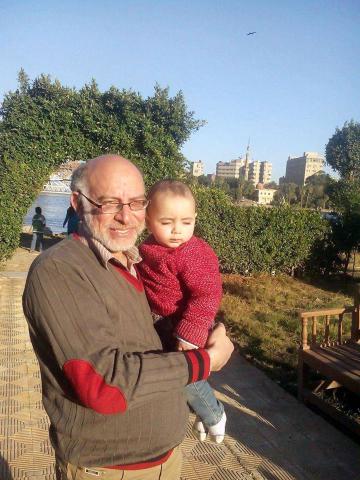
13 March 2017, Alkarama sent an urgent appeal to the United Nations Working Group on Enforced or Involuntary Disappearances (WGEID) concerning Dr Ahmed Shawky Abdelsatar Amasha, a 56-year-old Egyptian human rights activist who was arrested on 10 March 2017 at a police checkpoint in Nasr City, in Cairo. Despite their numerous requests to the authorities, his family remains without information about his fate and whereabouts. His case adds to the numerous disappearances that occur in the country on a regular basis, since the 2013 military takeover.
Dr Ahmed Shawky Abdelsatar Amasha was abducted on 10 March 2017 at 5 pm as he was crossing the police checkpoint of the Nasr City neighbourhood in Cairo, in front of friends and bystanders who witnessed the arrest. The police forces did not show any warrant nor provided any reasons for his arrest. His family is extremely worried as he has not returned home and has been unreachable on the phone since. Numerous complaints have been sent to the Egyptian authorities by his family, particularly to the Attorney General of Cairo, the Ombudsman, the Prime Minister, the Ministry of Interior and the President, to inquire about his fate and whereabouts. So far, no answer was given to the family who is extremely concerned over the fate of Dr Shawky and therefore turned to Alkarama for assistance.
Dr Ahmed Shawky Abdelsatar Amasha is a human rights activist, as well as member of the “Kefaya” opposition movement, and a trade unionist. He is notably an active member of the Association of the families of the disappeared, a vocal group of families fighting against enforced disappearances in country. Alkarama fears that his commitment to human rights and his active role in Egyptian civil society might have put him at risk of being arrested and secretly detained.
“In Egypt, the use of enforced disappearance is intended to deter citizens from uncovering the serious and widespread violations committed by the government and to silence all forms of peaceful criticism and dissent,” said Radidja Nemar, Alkarama's Regional Legal Officer for North Africa. “Dr Shawky’s abduction seems to directly fall within such a pattern and increases our concern over the fate of human rights activists in the country,” she added.
In its urgent appeal, Alkarama requested the WGEID to promptly intervene with the authorities and urge them to immediately inform his family of his fate and whereabouts and to immediately release him. Concerned about the widespread practice of enforced disappearances in Egypt, Alkarama sent a general allegation to the WGEID in April 2016, to denounce the severity of the phenomenon. Alkarama particularly called on the Egyptian authorities to release all individuals secretly detained, to place them under the protection of the law, but also urged them to immediately halt this systematic practice and urgently open prompt, independent and impartial investigations into every report of enforced disappearance.
Alkarama furthermore reminded the Egyptian authorities that due to their systematic and widespread nature, these violations amount to a crime against humanity thus triggering international criminal responsibility of perpetrators and their superiors.
For more information or an interview, please contact media@alkarama.org (Dir: +41 22 734 1008).
